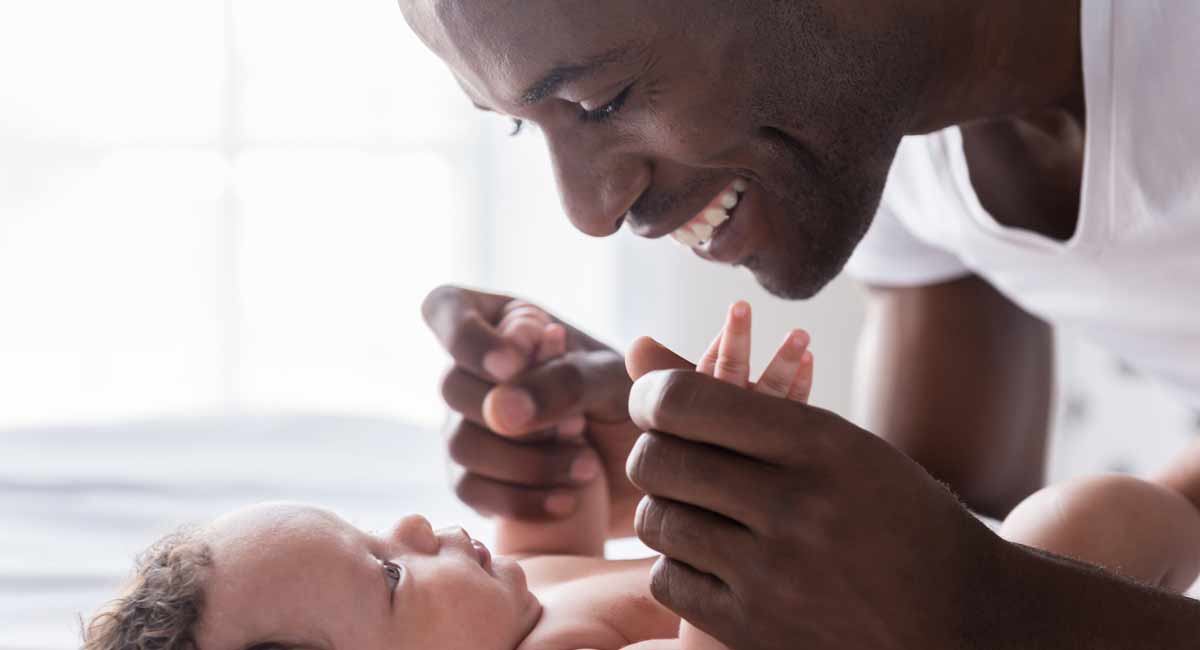If we believed movies and television, fathers would be nothing but dumb, unhelpful, and lazy. The media has made the belittlement of men top priority in order to get laughs and the modern world pushes the notion that women don’t need men to have a baby. Science proves otherwise, of course. But the reality is, the world needs men and children need their fathers.
Stronger emotional development
According to the U.S. Department of Health and Human Services, children with involved fathers “are more likely to be emotionally secure, be confident to explore their surroundings, and, as they grow older, have better social connections.” This is because fathers often play differently with their young children than mothers do. Their interactions tend to be more playful and adventurous, teaching children how to regulate their emotions and their behavior. Typical father-child “roughhousing,” despite how it might make some mothers nervous, teaches children how to handle their aggressive impulses.
Thanks to active and involved fathers, says HHS, children are more likely to stay out of trouble, and babies with fathers who respond to their needs can form better relationships later in life. They also show less risk of depression, with boys having fewer behavioral problems at school and girls showing stronger self-esteem. When children live with their father, they are in overall better health physically and emotionally.
“Fathers often push achievement while mothers stress nurturing,” says the HHS report, “Fathers and Their Impact on Children’s Well-being. “As a result, children who grow up with involved fathers are more comfortable exploring the world around them and more likely to exhibit self-control and pro-social behavior.”
READ: Man says father with Down syndrome inspired him to be the ‘best person’ possible
Better educational outcomes
It isn’t just a child’s emotional intelligence that is boosted by having Dad involved and at home. Children with active fathers perform better in school as well. Studies show that infants who have fathers that are nurturing and playful grow up to have higher IQs and better language and cognitive skills as well as higher academic achievement in adolescence. A U.S. Department of Education study actually found that children with highly involved biological fathers were 43 percent more likely to earn mostly As and 33 percent less likely to fail a grade and have to repeat. Children who are close to their fathers are reportedly twice as likely to attend college or find a stable job right after high school.
Fewer high-risk behaviors
Children who have strong relationships with their fathers are not only more emotionally stable and academically advanced, they also tend to avoid high-risk behaviors including having early sex, smoking, drinking alcohol, abusing drugs, dropping out of school, or law-breaking that lands them in jail. In fact, children who have involved and caring fathers are 75 percent less likely to become teen parents and 80 percent less likely to go to jail.
Gender roles
According to Psychology Today, boys who have involved fathers have more positive gender-role characteristics, and girls are more likely to have higher expectations of men.
What’s particularly important to note is that children in the United States, Canada, and the U.K. rank extremely low when it comes to social and emotional well-being, according to a 2007 UNICEF report. One theory as to why is the absence of fathers in the lives of these children. Out of the 21 wealthy nations in the report, the U.S. ranked 20th in family and peer relationships while Canada ranked 18th, and the U.K. ranked 21st.
While the majority of parenting studies and resources have tended to focus on the impact mothers have on children, it is becoming glaringly obvious that men have been wrongly dismissed of the important roles in the lives of their children.
“[… I]t is generally accepted, under most circumstances, that a father’s presence and involvement can be as crucial to a child’s healthy development as a mother’s,” wrote Ditta M. Oliker Ph.D. for Psychology Today, “and experiencing validation of their importance in the general parenting literature has made fathers much more conscious of their value, which, in turn, leads to their greater desire to be involved.”
“Like” Live Action News on Facebook for more pro-life news and commentary!







